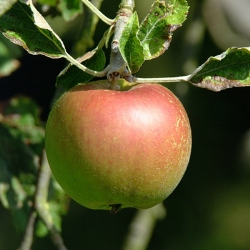|
David W. Landrum
Necessary Evil
after Ted Hughes
Dark floater in the eye of God,
sine to cosine, yin to yang, male dot
lodged in the female slug, yellow in blue.
Could Adam know the left-hand thread
of screws in a world where everything
turned right?
Could he not but be drawn to that singular
mysterious dark star absorbing light?
The Sultan Is Pleased
There is a Turkish dish called hunkar begendi—
the Sultan is pleased. Eggplant, milk and meat sauce.
But beware. The Sultan’s pleasure is a deadly thing.
Perhaps he will not wish to risk
inferior cuisine and you will die
rather than be permitted to cook
a dish less pleasing than the one he ate today.
Perhaps he’ll think the compliment he gave
will raise your status and ambition:
you occupy an advantageous place
and there are plots that often involve poison
and you may hang tonight for his mistrust;
you may suffer for your excellence
like those medieval lads who crooned so beautifully
they lost their balls and lived a watery life
singing a mutilated hymn to God,
their high castrato voices a paean
to rule’s magnificence and cruelty.
There is a graveyard filled with graves
of those hanged merely at the Sultan’s whim.
Better to serve bland food, be a bland man,
stay man, staying breathing.
Slice the eggplant’s purple skin reflectively.
Know suspicion is the food he eats.
Hipparchia
Female philosopher of ancient Athens, c. 300 BC
My husband, Cratus, believed
secrecy obscures virtue, so we
went out to make love in the marketplace
to show
no inside, no outside
should differentiate morality.
I was inhibited at first, blushed,
became obsessed with slenderness.
I hoped no one would come to watch us fuck
in the public square, but we always had a crowd—
some curious, some shocked, yet there to see
the most private of acts done in plain light.
Habit can heal, and when private became
public it was more secretive.
My spot was more secure, the barriers
more firm than a curtained bed inside stone walls.
When Pasicles was born, I spread my legs
in public—birth came easily to me
because I ran and trained for the heptathlon.
I used a tortoise shell
for his cradle, gave him cold baths and simple food.
He grew up strong.
Like a tortoise, I carry my house upon my back.
It is transparent.
Theodorus the Atheist tried to exclude me
from the council of philosophers.
“Why did you leave the loom, woman?” he sneered.
When I refuted him, he tore my garment off.
I sat there, calm and bare, and he fell quiet.
© David W. Landrum
|
